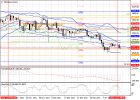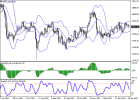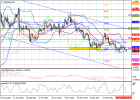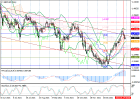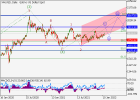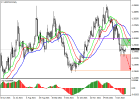Key Releases
United States of America
The US currency is weakening today against its main competitors – the yen, the pound and the euro.
The published December data of the American labor market turned out to be positive: the number of construction permits issued increased from 1.717M to 1.873M, and the number of new homes whose construction has just begun increased from 1.678M to 1.702M. Today, the head of the White House, Joe Biden, is due to speak at a press conference on the occasion of the anniversary of his inauguration. He will inform citizens about his new legislative initiatives, as well as about further plans to combat the coronavirus pandemic.
Eurozone
The European currency is strengthening against the USD, weakening against the pound and has ambiguous dynamics paired with the Japanese yen.
December data on the consumer price index in Germany were published today, which recorded an acceleration of inflation in the country. On a monthly basis, the index increased from -0.2% to 0.5%, and on an annual basis – from 5.2% to 5.3%. The pressure in the German and European economies as a whole continues to increase. In these circumstances, investors are turning their attention to the decisions of the European Central Bank (ECB), hoping that the regulator's officials will begin a more active fight against price increases following their colleagues from the Bank of England and the US Fed. However, the matter does not go beyond comments and hints yet. Last week, ECB Head Christine Lagarde said that inflation in the eurozone this year should decrease from the record high levels currently observed, and the agency is ready to take any measures necessary to reduce it to the target of 2.0%. The official's rhetoric was interpreted by some investors as a hint at the possibility of raising rates, but more specifically, the regulator's intention will be known only in early February, when the first meeting of the current year will take place. The head of the French central bank and ECB member Francois Villeroy de Galhau noted that France's economic growth has not slowed down from the rapid spread of the COVID-19 Omicron strain, but inflation in the eurozone's second-largest economy is still too high.
United Kingdom
The British currency today is strengthening against its main competitors – the euro, the yen and the USD.
The December data on inflation in the United Kingdom published today confirmed its further growth: the consumer price index rose from 5.1% to 5.4%, reaching its highest since 1992. The negative dynamics due to the increase in the cost of energy carriers should prompt the Bank of England to raise the interest rate again in early February, which, in turn, will serve as a catalyst for strengthening the pound. In addition, the UK has signs of a gradual exit from the coronavirus pandemic caused by the Omicron strain. The incidence in the country is gradually decreasing, which allows officials to announce the mitigation of existing quarantine measures as early as next week. On the other hand, the growth of quotations is hindered by the problems of the national labor market and the intensifying political crisis, which now occupy significant attention of investors. According to November data, wage growth in the UK is slowing down and is seriously not keeping up with the increase in inflation, which may negatively affect consumption and the state of the economy as a whole. Meanwhile, investors are following the development of the situation in the country's parliament: Boris Johnson is getting closer to losing the post of prime minister due to the scandal caused by his presence at the event, while strict coronavirus restrictions were in effect on the territory of the United Kingdom. Members of the Conservative Party have already begun to collect parliamentary requests to begin the procedure for removing the politician from office, but he himself does not intend to resign.
Japan
The Japanese currency is weakening against the pound, strengthening against the USD and has ambiguous dynamics paired with the euro.
Today, the Japanese government has extended emergency measures to the capital Tokyo and more than a dozen other regions of the country to stop the rapid spread of the COVID-19 Omicron strain. These measures will allow local authorities to limit the mobility of the population and business activity, reducing the opening hours of bars and restaurants and other establishments of mass attendance. So far, the incidence in Japan remains at high levels, and officials fear that the national health system may not be able to withstand the increased number of hospitalizations. Tomorrow, bidders expect the publication of data on foreign trade for December. It is predicted that the volume of imports of Japanese goods may slow down growth from 43.8% to 42.5%, and exports – from 20.5% to 16.0%. The implementation of forecasts may put pressure on the Japanese currency.
Australia
The Australian currency is strengthening against its main competitors – the euro, the pound, the yen and the USD.
The Australian dollar shows an upward trend in trading, despite the negative January data on the consumer sentiment index from Westpac: the indicator decreased from -1.0% to -0.2%. Australian citizens fear the deterioration of the epidemic situation and the tightening of quarantine restrictions, but Australian Prime Minister Scott Morrison said that the government does not plan to introduce additional sanitary measures, even despite the surge in the incidence. Moreover, the official announced the cancellation of visa fees for students and people who want to get a job at local enterprises for the next 12 weeks. These measures should reduce the labor shortage created during the pandemic.
Oil
Oil quotes are making moderate attempts to decline today.
The pressure on prices was exerted by statements from representatives of the International Energy Agency (IEA). Officials of the ministry noted that the supply of oil will soon exceed demand, as some producers may reach historical production peaks in Q1 2022. In particular, the department believes that the USA, Canada, Brazil, Saudi Arabia and Russia can seriously increase production. During the day, investors also expect the publication of a weekly report on the amount of oil reserves in the USA from the American Petroleum Institute (API). The last time the indicator decreased by 1.077M barrels, and the continuation of this trend may support oil quotes.












